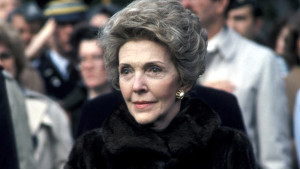Nancy Reagan will be remembered for many noble and good things.
The former first lady — who died this past weekend at age 94 — was a champion for her husband, the 40th president of the United States. She became arguably his closest advisor and by many accounts was his best friend. She sought to protect his image and his legacy and most historians today she succeeded famously at protecting both of those things.
She also was an advocate for Alzheimer’s research and that’s what I want to focus on here.
You see, many of us have intimate knowledge of that disease.
On Nov. 5, 1994, President Reagan penned that astonishingly poignant farewell letter to the nation as he disclosed his diagnosis. He and his bride then said their “long goodbye” to each other. Nearly a decade later, President Reagan would succumb to the complications of that disease.
Read the president’s letter here.
I’ve told you at times of my own experience with the disease, having watched my mother wither away and die 32 years ago from its effects at the too-tender age of 61. Take my word for it: It ain’t pretty.
Other family members of well-known Americans have taken up the cause for Alzheimer’s research. I think most often of Maria Shriver, whose father — Sargent Shriver — was rendered helpless by the affliction before he died. Shriver has vowed to carry the fight forward.
Nancy Reagan sought to raise research funds. She lobbied Congress to do more for the families who are the actual sufferers of this malady. They are the victims, who watch their loved ones lose their cognitive skill, their memory, their ability to do simple things, such as bathe and eat.
All those things happened to her beloved husband and she fought as hard as she could until the day he died and later — until her own health deteriorated.
The world she leaves behind needs more powerful advocates who will take up the cudgel for other family members who must endure the heartbreak of Alzheimer’s disease.
Thank you, Mrs. Reagan, for the waging this noble effort.
We haven’t finished the fight just yet, but we’re a lot closer to declaring victory.
